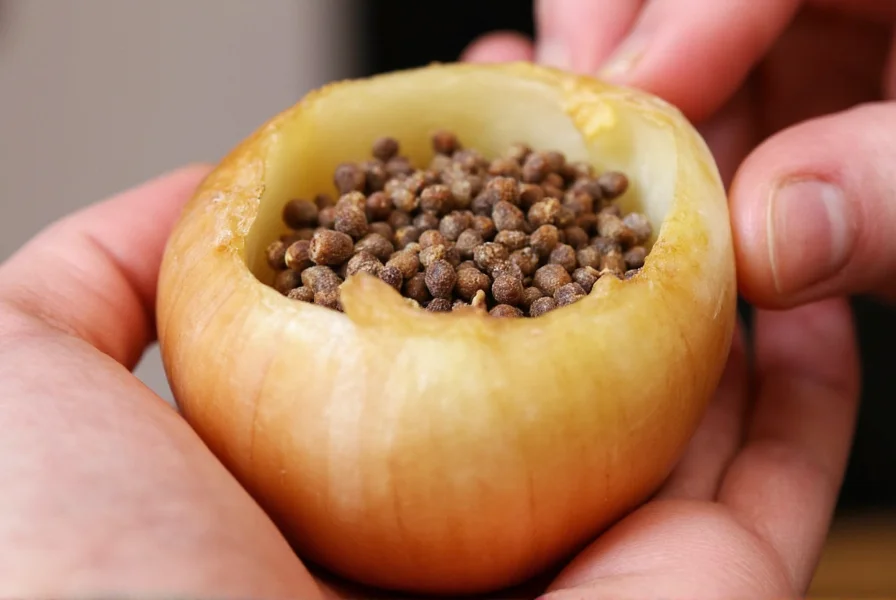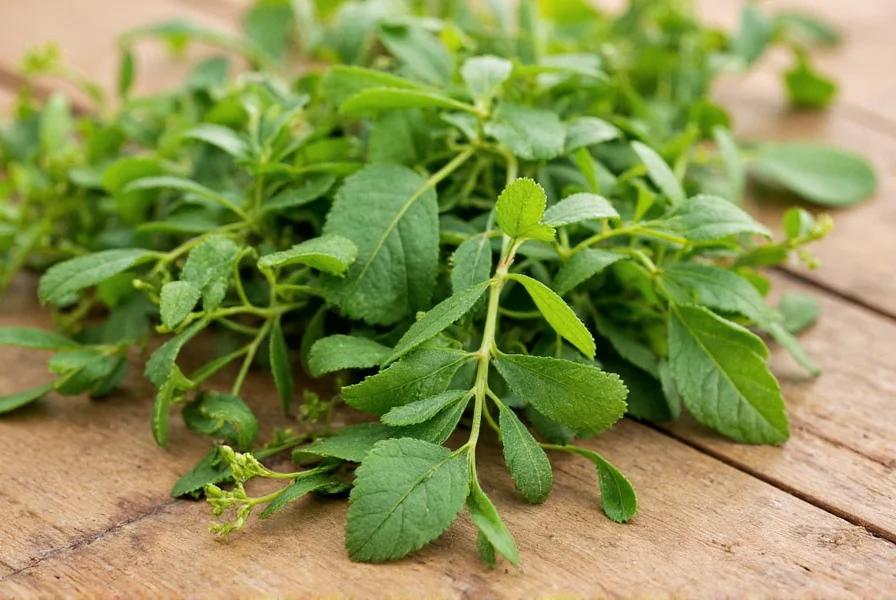Clove herb has been valued across civilizations for both culinary and therapeutic applications. This evergreen tree native to Southeast Asia produces the familiar nail-shaped buds that become the spice and herbal remedy known worldwide. Understanding its proper applications requires examining both traditional knowledge and modern scientific research.
Botanical Profile and Historical Significance
Syzygium aromaticum, formerly classified as Eugenia caryophyllata, belongs to the Myrtaceae family. The clove tree grows up to 12-15 meters tall and produces crimson flower buds that are harvested before they open. These buds contain one of the highest antioxidant capacities among spices, with an ORAC value of approximately 290,000 μmole TE/100g.
Historically, clove herb played a significant role in ancient Chinese, Indian, and Middle Eastern medicine. Chinese records from the Han Dynasty (206 BC–220 AD) mention cloves as a breath freshener for those addressing the emperor. In Ayurvedic medicine, cloves were used for digestive issues and respiratory conditions. The spice trade, particularly for cloves, drove European exploration and colonization efforts for centuries.

Chemical Composition and Active Compounds
The therapeutic properties of clove herb primarily stem from its essential oil composition. The key components include:
| Compound | Percentage in Essential Oil | Primary Effects |
|---|---|---|
| Eugenol | 70-90% | Analgesic, anti-inflammatory, antimicrobial |
| Eugenyl acetate | 5-15% | Anti-inflammatory, antioxidant |
| Beta-caryophyllene | 5-12% | Anti-inflammatory, gastroprotective |
| Alpha-humulene | 1-3% | Anti-inflammatory, antimicrobial |
Eugenol, the primary active compound, works by inhibiting cyclooxygenase enzymes and blocking pain receptors, explaining its effectiveness for dental pain. Research published in the Journal of Dentistry confirms that clove oil provides comparable short-term pain relief to benzocaine for toothaches.
Scientifically Supported Health Applications
Modern research validates several traditional uses of clove herb while revealing new potential applications:
Dental Health Benefits
Clove herb's most well-documented application is in dental care. The American Dental Association recognizes clove oil as a temporary remedy for toothaches. A 2020 systematic review in Complementary Therapies in Medicine found that clove oil significantly reduced dental pain intensity within 20 minutes of application, with effects lasting up to 60 minutes.
Antimicrobial Properties
Studies demonstrate clove herb's effectiveness against various pathogens. Research in the Journal of Medicinal Food showed that clove essential oil inhibited the growth of 21 strains of bacteria, including Staphylococcus aureus and E. coli. Its antifungal properties make it effective against Candida species, with one study showing complete inhibition of Candida albicans at concentrations as low as 0.06%.
Anti-inflammatory Effects
The eugenol in clove herb reduces inflammation by inhibiting NF-kB signaling pathways. A 2019 study in Phytotherapy Research demonstrated that clove extract reduced inflammatory markers in subjects with arthritis, though more extensive human trials are needed to confirm therapeutic dosages.
Culinary Applications and Proper Usage
Clove herb adds distinctive flavor to both sweet and savory dishes. Unlike many spices, a little goes a long way due to its intense flavor profile. When using whole cloves:
- Use 2-4 whole cloves per recipe for subtle flavor
- Remove before serving as they remain hard when cooked
- Works well in braises, stews, and mulled beverages
For ground clove, use sparingly—typically 1/8 to 1/4 teaspoon per recipe. Clove pairs particularly well with:
- Cinnamon and nutmeg in baked goods
- Apple, pear, and pumpkin flavors
- Rice dishes and Middle Eastern cuisine
- Marinades for lamb and game meats

Safety Considerations and Potential Side Effects
While generally recognized as safe for culinary use, concentrated clove products require caution:
- Dental application: Never apply undiluted clove oil directly to gums for extended periods as it can cause tissue damage
- Internal consumption: Limit to 2-3 cloves daily or as directed by a healthcare provider
- Children: Not recommended for children under 2 years; use only under professional guidance for older children
- Pregnancy: Culinary amounts are generally safe, but therapeutic doses should be avoided
Potential side effects of excessive consumption include:
- Oral mucosal irritation or burns from concentrated oil
- Nausea or gastrointestinal discomfort
- Bleeding risk when combined with blood-thinning medications
- Liver toxicity at very high doses (primarily documented in animal studies)
Selecting and Storing Quality Clove Herb
To maximize both flavor and therapeutic potential, proper selection and storage are essential:
- Whole vs. ground: Whole cloves retain potency significantly longer than ground versions
- Quality indicators: Look for plump, reddish-brown buds with visible oil when squeezed
- Freshness test: Fresh cloves will sink in water; stale ones will float
- Storage: Keep in airtight containers away from light and heat; whole cloves last 1-2 years
When purchasing clove essential oil for therapeutic use, ensure it's 100% pure with no additives. Therapeutic-grade oils typically contain 85-90% eugenol, while lower-quality products may have significantly less.
Conclusion
Clove herb represents one of nature's most versatile botanicals with both culinary and therapeutic applications supported by centuries of traditional use and growing scientific evidence. Its effectiveness for temporary dental pain relief, antimicrobial properties, and distinctive flavor profile make it valuable in appropriate contexts. As with any natural remedy, understanding proper usage, potential interactions, and limitations is essential for safe and effective application. When used appropriately, clove herb remains a valuable component of both kitchen pantries and natural remedy collections.
Frequently Asked Questions
Can clove herb really help with toothaches?
Yes, clove herb can provide temporary relief for toothaches. The eugenol in clove oil acts as a natural anesthetic and anti-inflammatory agent. Research shows it can reduce dental pain intensity within 20 minutes of application. However, it's important to note this is only a temporary solution—you should still see a dentist for proper diagnosis and treatment of the underlying cause.
What's the difference between clove herb and clove spice?
Clove herb and clove spice refer to the same botanical product—the dried flower buds of Syzygium aromaticum. The term "clove herb" is often used when discussing medicinal applications, while "clove spice" typically refers to culinary uses. Both come from the same source but may be processed differently for their intended purposes. Therapeutic-grade clove oil for medicinal use typically has higher eugenol content than culinary-grade products.
How should I use clove herb for sore throat relief?
For sore throat relief, you can make a clove tea by steeping 2-3 whole cloves in hot water for 10 minutes, then straining. Gargle with the cooled liquid several times daily. Alternatively, add 1-2 drops of clove essential oil to a glass of warm water (never use undiluted) and gargle. Note that clove oil should never be swallowed in concentrated form and should be used cautiously as it can irritate mucous membranes if not properly diluted.
Are there any medications that interact with clove herb?
Yes, clove herb may interact with certain medications. The eugenol in cloves has blood-thinning properties, so it may enhance the effects of anticoagulant medications like warfarin. It may also affect blood sugar levels, potentially interacting with diabetes medications. If you're taking any prescription medications, particularly blood thinners or diabetes drugs, consult with your healthcare provider before using clove herb in therapeutic amounts.
Can I grow my own clove herb plant?
Clove plants (Syzygium aromaticum) are tropical evergreen trees that require specific growing conditions. They need consistently warm temperatures (70-95°F), high humidity, and well-draining acidic soil. While possible to grow in USDA zones 10-12, they rarely produce harvestable buds outside their native Southeast Asian habitat. Most home gardeners in temperate climates find it impractical to grow clove trees for spice production, though they can be grown as ornamental plants in suitable climates.











 浙公网安备
33010002000092号
浙公网安备
33010002000092号 浙B2-20120091-4
浙B2-20120091-4